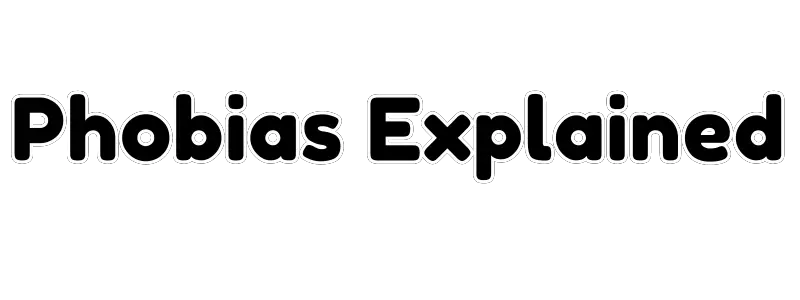Journey into understanding philophobia, the fear of forming deep emotional bonds, its causes, manifestations, and strategies for management.

What Is the Fear of Forming Deep Emotional Bonds Phobia?
Imagine you're standing on the edge of a cliff, looking down at the vast ocean below. That's how people with philophobia, the fear of forming deep emotional bonds, feel when faced with the possibility of getting close to someone.
It's not simply about being shy or reserved; it's a genuine, deep-seated fear that can be both debilitating and isolating. It's a complex and often misunderstood phobia, so let's take a moment to explore it.
What causes it, how does it manifest, and most importantly, how can you manage and possibly overcome it? There's much to learn, so let's get started.
Key Takeaways
- Philophobia is a fear of forming deep emotional bonds rooted in past traumatic experiences.
- It is not about being antisocial or introverted, but rather a shield against potential heartbreak and rejection.
- Philophobia can be caused by childhood incidents associating emotional bonds with fear and pain, as well as dysfunctional relationships and conflicting societal messages.
- Symptoms of philophobia include extreme anxiety, avoidance behaviors, physical symptoms, intrusive thoughts, and constant worry about emotional intimacy.
Understanding Philophobia

Diving into the abyss of philophobia, it's crucial to grasp that this fear, deeply rooted in the psyche, can significantly disrupt your ability to form intimate and meaningful relationships. This phobia isn't about being antisocial or introverted. It's an intense, irrational fear of emotional attachment or love, often stemming from past traumatic experiences.
Understanding philophobia means acknowledging its complexity. It's not just the fear of falling in love, but also the dread of emotional vulnerability. It's a shield, a defensive mechanism to protect you from potential heartbreak, rejection, or abandonment. But in doing so, it isolates you, depriving you of the deep human connections that enrich life.
Know that you're not alone. Countless people grapple with this fear. It's understandable, given the vulnerability love demands. Yet, it's important to remember that love, with its risks, also brings immense joy and fulfillment.
Overcoming philophobia isn't about eradicating fear completely, but learning to manage it. Reach out to professionals, confide in trusted individuals, and most importantly, be patient with yourself. Healing takes time, but it's the first step towards embracing the beauty of emotional bonds.
Causes of Emotional Bond Phobia

While understanding the complexities of philophobia is vital, it's equally important to delve into what causes this deep-seated fear of emotional bonds. You might believe it's as simple as a fear of commitment, but it's often much deeper than that.
Some people develop this phobia due to past traumatic experiences. Perhaps you've been hurt before, and the lingering pain makes it difficult for you to trust again. In some cases, it could be an unfortunate incident from childhood that causes you to associate emotional bonds with fear and pain. On the other hand, you might've observed dysfunctional relationships around you, causing you to fear the pain and turmoil that can come with emotional bonds.
In other instances, it's not about what you've experienced, but what you've learned. Society often sends conflicting messages about love and relationships. You may feel pressured to avoid vulnerability, equating it with weakness. This can lead to an irrational fear of forming deep emotional bonds.
Recognizing the Symptoms

To better understand your fear of forming deep emotional bonds, it's crucial to recognize the symptoms, which can manifest in various ways depending on your personal experiences and emotional resilience. You might experience extreme anxiety or distress when the prospect of forming a close relationship arises. This can lead to avoidance behaviors, where you consciously or unconsciously steer clear of situations that may lead to emotional closeness.
Physical symptoms can also occur, such as heart palpitations, shortness of breath, sweating, or nausea when faced with the potential for deep emotional connection. On a mental level, you might find yourself plagued by intrusive thoughts or fears about emotional intimacy, leading to a constant state of worry or apprehension.
It's important to remember that these symptoms aren't a sign of personal failure or weakness. They're a response to a deeply ingrained fear, often rooted in past experiences. Addressing this fear isn't about 'getting over it', but rather understanding it, acknowledging it, and seeking help when you're ready.
Impact on Personal Relationships

Building on the understanding of your symptoms, it's clear that this fear can significantly affect your personal relationships, shaping how you interact with others and leading to a complex network of emotional challenges. You may find yourself avoiding closeness, not because you don't desire companionship, but because the thought of forming a deep connection terrifies you.
This fear can create a barrier between you and potential partners, friends, or even family, as you might constantly be on guard, afraid of letting them get too close. It's a vicious cycle; your fear of emotional intimacy can push people away, which in turn may exacerbate your feelings of isolation and fear.
Understanding the impact of this phobia on your relationships is a critical step towards addressing it. Recognize that it's not your fault; it's a genuine fear that many people experience. Seek professional help if you find it too difficult to navigate alone.
Managing and Overcoming Philophobia

Navigating your way through philophobia might seem daunting, but there are effective strategies you can employ to manage and eventually overcome this fear.
It's crucial to recognize that you're not alone and seeking help is the first step to recovery.
Engaging with a professional therapist can provide you with valuable insight into your fear and arm you with coping mechanisms. They'll help you understand the root of your fear and assist you in gradually confronting and reshaping your thought patterns.
Mindfulness and relaxation techniques can also be incredibly beneficial. They'll help you stay in the present moment, reducing the overwhelming feelings of fear. Yoga, meditation, or even simple breathing exercises can calm your mind and body, making it easier for you to manage your anxiety.
Moreover, self-care is essential in overcoming philophobia. Ensure you're eating well, exercising regularly, and getting enough sleep. These simple health practices can help reduce your anxiety levels and make you feel more in control.
Conclusion
Understanding the fear of forming deep emotional bonds, or philophobia, isn't easy. It's deeply rooted in personal experiences and can significantly hinder personal relationships.
However, recognizing symptoms is the first step towards recovery. It's important to remember, you're not alone and it's okay to seek assistance.
Take heart, with the right strategies and support, overcoming philophobia is possible. Remember, it's okay to be vulnerable, it's okay to form deep bonds, and most importantly, it's okay to love.


Sign up